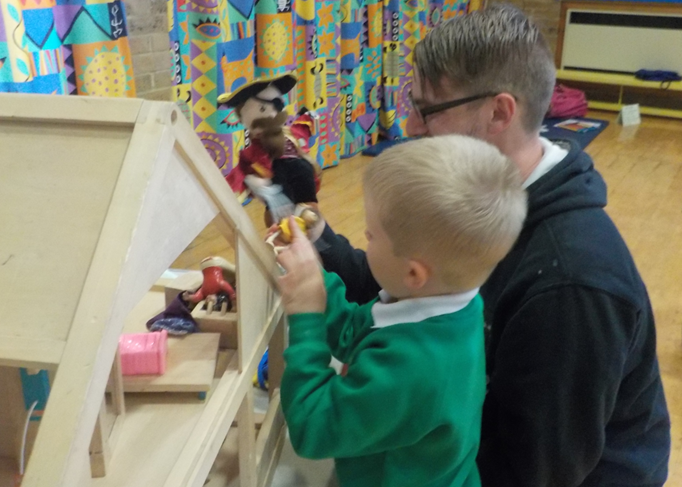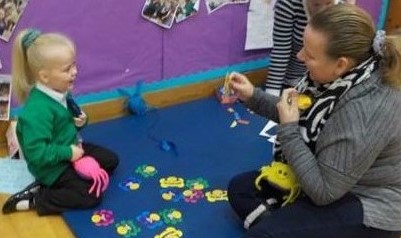The school and its major feeder pre-school, Bushytails, invites all parents whose children are due to start at the school in September, to attend a Transition Peep group of six weekly sessions during June-July. The school’s reception class Learning and Support Assistant (LSA) Lyn Hayes plans and delivers these sessions, while the pre-school use their existing relationships with families to help the school staff and families get to know each other more quickly. So many families wanted to attend that three groups were held.
Weekly Peep sessions continue in the autumn term, with new parents also being invited to join. The practitioner primarily uses the Peep topics, but also weaves in the Characteristics of Effective Learning, what will be happening during the school day, and how parents can support this. The Peep Learning Together Programme (LTP) complements the Early Years Foundation Stage, with the LTP’s five developmental strands focusing on Personal, Social and Emotional Development, Communication and Language, Early Literacy, Early Maths, and Health and Physical Development.
Depending on the needs and interests of the families, groups sometimes have a specific focus, such as Communication and Language, and other times follow all the Peep strands. Regular stay and play sessions, underpinned by the week’s Peep session focus, is also offered to all reception class parents. The initial Peep group was over‑subscribed so there are now two larger Peep groups each week.


 Peep is becoming so embedded in school culture that parents see it as a normal part of school life. It is having a positive impact on children’s learning outcomes and their settling into school, on parents’ understanding and confidence in how they can support their children’s learning at home, and on family-school relationships. There has been a significant increase in the proportion of Peep children reaching a 'Good level of development' (GLD, the English government's target for children's outcomes at the age of five).
Peep is becoming so embedded in school culture that parents see it as a normal part of school life. It is having a positive impact on children’s learning outcomes and their settling into school, on parents’ understanding and confidence in how they can support their children’s learning at home, and on family-school relationships. There has been a significant increase in the proportion of Peep children reaching a 'Good level of development' (GLD, the English government's target for children's outcomes at the age of five).